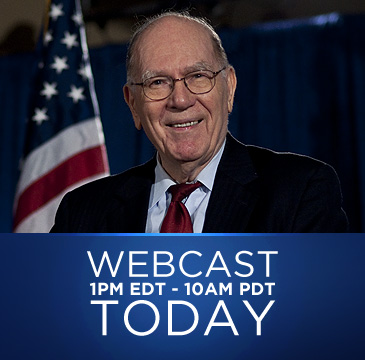Fćrsluflokkur: Stjórnmál og samfélag
9.5.2010 | 15:02
Merkel Pressured By British To Set Up Fund To Defend Euro
May 9, 2010 (LPAC)—According to the German financial daily Handelsblatt, German Chancellor Angela Merkel was pressured by French President Nicolas Sarkozy and EU Commission President Jose Manuel Barroso to agree at a summit of the Eurozone heads of state and government to the creation of a new mechanism to defend the euro. Details of the new mechanism will not be released until after a meeting on Sunday, May 9, in Brussels of the 27 EU Finance Ministers and the mechanism will go into effect before the markets open on Monday in Asia.
As Handlesblatt reports Merkel has always been firmly opposed to the creation of such a mechanism because it is not in accord with the bailout prohibition of the European Union. Diplomats reported that Merkel capitulated under pressure from Sarkozy and Barroso. This mechanism would be in addition to the $140 billion bailout of Greece.
According to Britain's Guardian, the "intervention unit" will have up to EU70 billion at its disposal.
During his international webcast on Saturday, Lyndon LaRouche responded to a report on this development from his wife Helga Zepp-LaRouche, who is chairwoman of the BueSo political party in Germany: "This comes from Britain, entirely from Britain. And you can say so. I can be quoted on this, publicly attributed, yes. This operation was entirely British. The British, as I said earlier today, the British system is in an existential crisis. And what happened on Wall Street on Thursday is a reflection of that existential crisis of the British system. The British system is intrinsically bankrupt, and the issue here is this: Again, the Inter-Alpha Group of Jacob Rothschild and company Jacob Rothschild is nothing but the errand boy for the British monarchy and the British Empire. This group of banks, now this involves especially the banks of Spain, Portugal, Ireland, England, and some others. If the United States were, as it must, to support the Glass-Steagall reform, which is being pushed in detail by McCain, Cantwell, and so forth, if that is instituted, the British Empire goes down, right now. That's the crisis. That's what it's all about. And under those conditions, the British will kill; they always do. This is an existential crisis for the British Empire. It cannot survive a Glass-Steagall system re-installed by the United States; that's the reality....
"There's only one thing to do with this thing. Obviously the operation in Germany is British-run. It's entirely run from London. It's not a German policy, it's a British policy.
"Now, what we do is we, in the United States, mobilize to the extreme, for this reform which we're pushing: Back to Glass-Steagall. The Glass-Steagall reform will crash the British system. When we have crashed the British system, by re-establishing the Glass-Steagall, by doing that we're going to create a situation where the British will no longer be able to impose these things.
"If you go into Germany now, and you try to find a solution which can be worked out from inside Germany per se, you're not going to succeed. You have to have an outside—you have to have a global factor. This is a global empire we're dealing with. The British Empire is a global empire. We are the only nation which is capable at this point, of destroying that global empire.
"We require, of course, cooperation with China, which under the right conditions, we will get. Under the right conditions, we'll get Russia's cooperation, and other nations. We can have cooperation from —well, I could name Iran, for example. These countries are looking for cooperation with the United States. and we're not giving it to them.
"If we push this, which admittedly, Obama will fight to the death, if we do that, we can break this up. You have to think strategically, not in terms of a specific medicine for a specific symptom. You have to get to the thrust of the disease itself.
"The way to do that is go with this Glass-Steagall reform, now! Push it through, ruthlessly.
"And on these other cases she mentioned, that if we do it, we can win. The potential is there. But we have to do it. We have to insist that everybody goes and supports this, as far as we're concerned. Every patriotic American will support this Glass-Steagall reform. If they don't do it, if they're not fullbent on doing it, then they're not really patriots. Because we need this strategically, to save the United States. We need this to save the world. If we are saved by this action, we will save the world. As poor and miserable as we are, as a factor in world history, when the other side is much poorer than we are, in terms of resources and capability, we can win. So, let's go out there and win. And beat these bastards."
8.5.2010 | 22:43
Documentation: McCain-Cantwell Amendment and Feingold's Floor Remarks on Glass-Steagall
May 8, 2010 (LPAC)-- Following is the text of S.Amendment 3884, introduced by Senators Cantwell, McCain, Kaufman, Harkin, Feingold, and Sanders; the amendment is identical to the "Banking Integrity Act of 2009" introduced by Cantwell and McCain in December.
SEC. 171. LIMITATIONS ON BANK AFFILIATIONS.
(a) Limitation on Affiliation.—The Banking Act of 1933 (12 U.S.C. 221a et seq.) is amended by inserting before section 21 the following:
"Sec. 20. Beginning 1 year after the date of enactment of the Restoring American Financial Stability Act of 2010, no member bank may be affiliated, in any manner described in section 2(b), with any corporation, association, business trust, or other similar organization that is engaged principally in the issue, flotation, underwriting, public sale, or distribution at wholesale or retail or through syndicate participation stocks, bonds, debenture, notes, or other securities, except that nothing in this section shall apply to any such organization which shall have been placed in formal liquidation and which shall transact no business, except such as may be incidental to the liquidation of its affairs.".
(b) Limitation on Compensation.—The Banking Act of 1933 (12 U.S.C. 221 et seq.) is amended by inserting after section 31 the following:
"Sec. 32. Beginning 1 year after the date of enactment of the Restoring American Financial Stability Act of 2010, no officer, director, or employee of any corporation or unincorporated association, no partner or employee of any partnership, and no individual, primarily engaged in the issue, flotation, underwriting, public sale, or distribution, at wholesale or retail, or through syndicate participation, of stocks, bonds, or other similar securities, shall serve simultaneously as an officer, director, or employee of any member bank, except in limited classes of cases in which the Board of Governors of the Federal Reserve System may allow such service by general regulations when, in the judgment of the Board of Governors, it would not unduly influence the investment policies of such member bank or the advice given to customers by the member bank regarding investments.".
(c) Prohibiting Depository Institutions From Engaging in Insurance-Related Activities.—
(1) IN GENERAL.—Beginning 1 year after the date of enactment of this Act, and notwithstanding any other provision of law, in no case may a depository institution engage in the business of insurance or any insurance-related activity.
(2) DEFINITION.—As used in this section, the term "business of insurance" means the writing of insurance or the reinsuring of risks by an insurer, including all acts necessary to such writing or reinsuring and the activities relating to the writing of insurance or the reinsuring of risks conducted by persons who act as, or are, officers, directors, agents, or employees of insurers or who are other persons authorized to act on behalf of such persons.
Following are the remarks of Sen. Russ Feingold, delivered on the Senate floor on May 6, 2010 in support of the Glass-Steagall amendment:
Mr. FEINGOLD. Madam President, I am glad the Senate is finally considering the critically important issue of financial regulatory reform. Few things are as important as ensuring we never again suffer the kind of meltdown of the financial markets that shoved our economy into the worst recession since the Great Depression. I think it still remains to be seen if this bill will do that. While it certainly includes some good reforms, more needs to be done, and the track record of Congress in this area is, at best, checkered.
For the last 30 years, Presidents and Congresses have consistently given into Wall Street lobbyists and weakened essential safeguards. As has been the case in so many areas, members of both political parties are to blame. Legislation that paved the way for the creation of massive Wall Street entities and removed essential protections for our economy passed with overwhelming bipartisan support. From the savings and loan crisis in the late 1980s to the more recent financial crisis that triggered the horrible economic down turn from which we are still recovering, those three decades of bipartisan blunders have been devastating to our Nation. The price of those blunders has been paid by homeowners, Main Street businesses, retirees, and millions of families facing an uncertain economic future.
The impact of the recent financial crisis on the Nation's economy has been enormous. Millions have lost their jobs and millions more who are lucky enough to have a job are forced to work fewer hours than they want and need to work. According to a study done by the Pew Trust, the financial crisis caused American households an average of nearly $5,800 in lost income. Of course, families lost a significant amount of their personal savings. As a nation, we lost $7.4 trillion in stock wealth between July 2008 and March 2009 and another $3.4 trillion in real estate wealth during that same time. We simply cannot afford to continue down the path policymakers have set over the past 30 years.
The test for this legislation then is a simple one: Whether it will prevent another financial crisis. Central to that test will be how this bill will address too big to fail. This is a critical issue that has been growing for some time now as increased economic concentration in the financial services sector has put more and more financial assets under the control of fewer and fewer decisionmakers.
Years ago, a former Senator from Wisconsin, William Proxmire, noted that as banking assets become more concentrated, the banking system itself becomes less stable, as there is greater potential for systemwide failures. Sadly, Senator Proxmire was absolutely right, as recent events have proved. Even beyond the issue of systemic stability, the trend toward further concentration of economic power and economic decisionmaking, especially in the financial sector, simply is not healthy for the Nation's economy.
Banks have a very special role in our free market system: They are rationers of capital. When fewer and fewer banks are making more and more of the critical decisions about where capital is allocated, then there is an increased risk that many worthy enterprises will not receive the capital needed to grow and flourish. For years, a strength of the American banking system was the strong community and local nature of that system. Locally made decisions made by locally owned financial institutions—institutions whose economic prospects are tied to the financial health of the community they serve—have long played a critical role in the economic development of our Nation and especially for our smaller communities and rural areas.
But we have moved away from that system. Directly as a result of policy changes made by Congress and regulators, banking assets are controlled by fewer and fewer institutions, and the diminishment of that locally owned and controlled capital has not benefited either businesses or consumers. Of course, most dramatically, taxpayers across the country must now realize that Senator Proxmire's warning about the concentration of banking assets proved to be all too prescient when President Bush and Congress decided to bail out those mammoth financial institutions rather than allowing them to fail. That was a bailout I strongly opposed.
The trend toward increased concentration of capital was greatly accelerated in 1994 by the enactment of the Riegle-Neal Interstate Banking and Branching Act and especially in 1999 by the enactment of the Gramm-Leach-Bliley Act, which tore down the protective firewalls between commercial banking and Wall Street investment firms.
Those firewalls had been established in the wake of the country's last great financial crisis 80 years ago by the Banking Act of 1933, the famous reform measure also known as the Glass -Steagall Act.
Prior to Glass -Steagall , devastating financial panics had been a regular feature of our economy, but that changed with the enactment of that momentous legislation, which stabilized our banking system by implementing two key reforms. First, it established an insurance system for deposits, reassuring bank customers that their deposits were safe and, thus, forestalling bank runs. Second, it erected a firewall between securities underwriting and commercial banking so financial firms had to choose which business to be in. That firewall was a crucial part of establishing another protection—deposit insurance—because it prevented banks that accepted FDIC-insured deposits from making these speculative bets with that money.
The Gramm-Leach-Bliley Act tore down that firewall, as well as the firewall that separated insurance from Wall Street banks, and we have seen the disastrous results of that policy. I voted against tearing down the firewall that separated Main Street from the Wall Street banks. I did it for the same reason I voted against the Wall Street bailout: because I listened to the people of Wisconsin who did not want to give Wall Street more and more power. Wall Street was gambling with the money of hard-working families and too many Members of Congress voted to let them do it. I didn't support it before and I will not support it now. We [Page: S3307] have to get this legislation right and protect the people of Wisconsin and every State—protect them from something such as this ever happening again.
So I was pleased to join the Senator from Washington, Ms. Cantwell, and the Senator from Arizona, Mr. McCain, in introducing legislation to correct that enormous mistake Congress made in passing Gramm-Leach-Bliley. I look forward to supporting an amendment to this measure based on the Cantwell-McCain-Feingold bill.
The measure before us seeks to make up for the lack of a protective firewall between the speculative investment bets made by Wall Street firms and the safety net-backed activities of commercial banking by imposing greater regulatory oversight. We have seen how creative financial firms can be at eluding regulation when so much profit is at stake. No amount of regulatory oversight can take the place of the legal firewall established by Glass -Steagall . So when it is offered, I urge my colleagues to support Senator Cantwell's amendment to restore that sensible protection. Rebuilding the Glass -Steagall firewall is essential in preventing another financial crisis.
But even if we restore Glass -Steagall, there are additional steps we should take to address too big to fail in this bill. I am pleased to be joining the Senator from North Dakota in offering his amendment to address the problem directly by requiring that no financial entity be permitted to become so large that its failure threatens the financial stability of the United States. I am also looking forward to supporting an amendment that will be offered by the Senator from Ohio, Mr. Brown, and the Senator from Delaware, Mr. Kaufman, who is in the Chamber, that proposes bright line limits on the size of financial institutions. The disposition of those three proposals I have just reviewed will go a long way in determining my vote for the final version of this measure. I very much want to craft in this body a bill that can prevent the kind of crisis we experienced in the past, but the bill before us needs some work before we can legitimately make that claim.
I thank the President and I yield the floor.
May 8, 2010 (LPAC)—The compromise struck by Sen. Bernie Sanders (I-Vt.) with the Obama White House and Sen. Chris Dodd (D-Ct.), to modify his amendment on the auditing of the Federal Reserve, has created a problem for Treasury Secretary Tim Geithner that could soon end his career. While dropping the demand for annual audits, covering the Fed's lending practices, as well as the operations of the Federal Open Market Committee, the amendment mandates a one-time audit of the Fed's actions during the banking blow-out of 2008, particularly the actions by the New York Fed, then headed by Geithner. Under the compromise reached between Sanders and the White House, documents on the New York Fed's loans to the big Wall Street banks, which had been jealously guarded by the White House, will now be released to the public. According to one well-placed Washington, D.C. source, this was Sen. Sanders' primary goal all along.
When, as the Wall Street Journal characterizes it, "The Sanders forces were winning, and Majority Leader Reid was about to join them," the White House offered the compromise of one audit to Sanders. Sources report that White House Chief of Staff Rahm Emmanuel had been working around-the-clock to kill the Sanders amendment for the past two weeks. Now, the White House not only let it pass; they endorsed it. Co-sponsor Rep. Ron Paul (R-TX) expressed disappointment that it was watered down and called it a "sell-out," but the true dynamic outcome was another Obama defeat, in a Senate where some people are now being driven by reality. Had the bill passed over Obama's opposition, the spectacle of Obama vetoing the bill, in order to protect the Federal Reserve bail-outs, would have resulted.
Looking into the Federal Reserve's decisions in the 2008 meltdown raises the question, "How much did Geithner spend to bail out the worthless derivatives?" — a timebomb for Geithner, who was protecting Wall Street as head of the New York Fed, and who is doing the same thing now as Treasury Secretary.
8.5.2010 | 13:02
WEBCAST TODAY.
8.5.2010 | 08:31
European Blowout Makes Glass-Steagall Urgent, Now!
May 7, 2010 (LPAC)—In addition to action in the U.S. Senate for reinstating of Glass Steagall, David Komansky, the former CEO of Merrill Lynch, is the latest Wall Street figure to come out publicly in support of the restoration of Glass Steagall. In an interview with Bloomberg on May 5, Komansky confessed, "Unfortunately, I was one of the people who led the charge to try to get Glass-Steagall repealed. I regret those activities and wish we hadn't done that." Komansky joins former Citigroup CEO John Reed, who made the same mea culpa in January of this year.
Lyndon LaRouche today linked this building energy around Glass-Steagall, particularly the Cantwell-McCain amendment to the Dodd bill, to the blowout of the European financial system. "One of the reasons there is so much energy around Glass-Steagall is that anyone with half a brain recognizes that the entire European system is in a breakdown. And unless there is immediate passage of Glass-Steagall, you cannot save the United States from a chain-reaction collapse. There is energy because there are people in the system with brains enough to realize that we are in an existential crisis.
"For a change," LaRouche continued, "the intentions behind the actions of some people in Congress are being driven by reality."
While the panic over the European contagion continued to grab headlines today, LaRouche focused on a deeper level of the collapse of the entire European Monetary Union, a level that must be comprehended to understand what must be done. "The center of the now-onrushing collapse of Europe must be traced back to the British policy that was set in motion from 1987-1992, through Margaret Thatcher, Francois Mitterrand and George H.W. Bush. Their Maastricht policy, combined with the Greenspan Fed policy of promoting derivatives as the response to the stock market crash of 1987, created a financial and monetary bomb that is now exploding. This is the biggest financial bomb in human history. The explosion is now centered in the Rothschild-linked Inter-Alpha Group, and in Britain, Brazil, Spain and the entire European Monetary Union zone. The bomb was ready to blow. But it was detonated by the stupid handling of the Greece. So, now, Europe has blown up, and the only sane option is for the United States to act immediately, to save itself from the contagion.
"The United States must take action to protect itself from the disintegration of the British System, which has already happened. Who cares about the British System? No one in their right mind cares. But, to save the rest of Europe, the United States must act first, by immediately reinstating Glass Steagall; because, if the United States goes down, the rest of the world goes down."
LaRouche concluded, "So Glass Steagall—the Cantwell-McCain amendment to the Dodd bill—is now the patriotic litmus test, for every member of the U.S. Senate, for starters. We must save the United States from the European disease. Anyone who is not with us on that is either unpatriotic, or insane, or both."
WEBCAST: 8. MAY http://www.larouchepac.com
Stjórnmál og samfélag | Breytt s.d. kl. 08:33 | Slóđ | Facebook | Athugasemdir (0)
7.5.2010 | 21:53
LaRouche: Ram Glass-Steagall Amendment Through the Senate Now!
May 7, 2010 (LPAC)—With the May 6 introduction of their explicit amendment, calling for Glass-Steagall measures to be applied to the U.S. banking system, to the Dodd financial reform bill, Senators Maria Cantwell (D-WA) and John McCain (R-AZ) have created the crucial strategic opening required to defeat the British imperial system, which is currently exploding toward total breakdown. If the amendment is passed, it will totally transform the Dodd bill, and be a giant step forward to carrying out the FDR-style American System reform, which Lyndon LaRouche has championed virtually alone over his career.
"This amendment is the most serious threat to the British Empire running loose on this planet today," LaRouche said May 6. "The bill must be fully supported, without quibble. If you don't support this, it means you don't care about civilization."
"The question is not the bill itself; the question is the policy: It is the only access we have for actually winning a Glass-Steagall reform. And, without a Glass-Steagall reform, there is no hope for the survival of the United States. So anybody who's not supporting this Glass-Steagall expression, in this bill, is not a loyal citizen of the United States."
This development is so urgent for the United States and civilization in general, that people must have a clear idea of what the authors of this amendment intend. We are thus including the full press release issued by Senator Cantwell's office on May 6, 2010. The amendment itself is identifiable as SA 3884:
Cantwell, McCain Seek to Restore Glass-Steagall Safeguards by Separating Commercial and Investment Banking Amendment would limit bank size and systemic threats to the whole economy.
WASHINGTON, DC, May 6—Today, U.S. Senators Maria Cantwell (D-WA) and John McCain (R-AZ) introduced a bipartisan amendment to separate commercial and investment banking. The proposed change in the banking and financial reform legislation being debated in the Senate is also cosponsored by Senators Ted Kaufman (D-DE), Tom Harkin (D-IA), and Russell Feingold (D-WI). The amendment restores safeguards modeled after the 1933 Glass-Steagall Act that protect bank deposits from being used in Wall Street's risky speculation. The amendment is based on the Cantwell-McCain Banking Integrity Act introduced in December 2009.
"Behemoth banks are putting their money into risky, get-rich-quick Wall Street schemes instead of investing in Main Street," Senator Maria Cantwell said. "So much U.S. taxpayer-backed money is going into speculation in dark markets that it has diverted lending capital from our community banks and small businesses that depend on loans to expand and create jobs. This is stifling America and it is why there is bipartisan support for restoring the important safeguards that protected Americans for decades after the Great Depression. It's time to go back to separating commercial banking from Wall Street investment banking."
"I want to ensure that we never stick the American taxpayer with another $700 billion — or even larger — tab to bail out the financial industry," said Senator John McCain. "If big Wall Street institutions want to take part in risky transactions — fine. But we should not allow them to do so with federally insured deposits. It is time to put a stop to the taxpayer financed excesses of Wall Street. No single financial institution should be so big that its failure would bring ruin to our economy and destroy millions of American jobs. This country would be better served if we limit the activities of these financial institutions."
"It's no coincidence that our financial sector got completely out of line once the Glass-Steagall prohibitions were overturned in 1999. By consolidating commercial banking, investment banking and insurance into single financial companies, institutions grew so large and became so interconnected that they were too big to fail," said Senator Tom Harkin. "It is clear to me that going back to the Glass-Steagall era regulations will help end the problem of too big to fail and will restore order to our financial sector."
The amendment filed today would prohibit commercial banks from affiliating in any manner with investment banks and vice versa; prevent officers, directors, and employees of a commercial bank from serving as an officer, director, or employee of an investment bank and vice versa; prohibit commercial banks from engaging in all insurance activities; and establish one year from date of enactment as the deadline for financial houses to transition and separate their commercial and investment banking operations.
Beginning in 1933, Glass-Steagall established a wall between commercial and investment banking to protect depositor money from being put at risk by Wall Street speculation. For nearly 60 years, this firewall maintained the integrity of the banking system; prevented self-dealing and other financial abuses; and limited stock market speculation. But since its repeal, banks have blended banking and brokerage, using loopholes in the Act and other statutes to market financial products like stocks, mutual funds and underwriting stocks to their consumers at the same time. When these megabanks default under the current system, taxpayers pay for the losses twice over.
The biggest banks keep getting bigger in the bailouts and the acquisitions. While there are 7,000 commercial banks in the United States, just five of them hold over 50 percent of our nation's bank-owned assets. Those same five entities hold over 95 percent of banks' risk in the derivatives markets.
Under the amendment, major financial firms currently operating both commercial banks and investment houses will have to make a decision on whether to focus on commercial banking or investment banking. In most of these institutions, the investment banks and the commercial banks will both be very valuable independently and profitable for their stockholders. By separating the commercial banks from the investment banks, the amendment ends speculation with depositor money and returns investments to Main Street.
7.5.2010 | 15:12
Greek Parliament Passed Bankers Dictatorship
May 7, 2010 (LPAC)—The Greek Parliament passed the European Union-mandated, brutal austerity package that will reduce Greek living standards by 20%, in order to save the Eurozone banks. Not only is the austerity politically unsustainable, but the bailout will not save the euro system that has already collapsed. The vote took place a day after some 200,000 people demonstrated against the policy in Athens; three people were killed in the course of the protests. While the deputies were voting, thousands of people gathered outside to protest the measures.
The government rejected a motion by the opposition for the measure to require a two-thirds majority in the 300-seat, unicameral Parliament, and the bill ended up being passed 172-121. Three deputies from the ruling PASOK party, which holds 160 seats, abstained. By contrast, some right-wing opposition members supported the bill, which most of the opposition deputies, including the conservative New Democracy, the Communist Party, and the Coalition of the Radical Left, voted against. The only member of the New Democracy party, which has 90 seats, to vote for the bill was former Foreign Minister Dora Bakoyiannis, who was immediately expelled by the party's leader, Antonis Samaras.
Prime Minister George Papandreou expelled the three deputies who abstained, rather than vote up the measure, kicking them out of his Socialist Party parliamentary group, thus reducing his majority to 157.
The vote demonstrated that there is no consensus in Parliament for such a brutal bill, and with cracks now appearing in the PASOK, the Papandreou government's days are numbered.
The trade unions are expected to hold more demonstrations next week.
WEBCAST MAY 8
Stjórnmál og samfélag | Breytt s.d. kl. 15:13 | Slóđ | Facebook | Athugasemdir (0)
7.5.2010 | 12:57
Geithner and Hank Paulson Frantic To Stop Glass Steagall
May 7, 2010 (LPAC)—Both former Treasury Secretary (and Goldman Sachs CEO) Hank Paulson, and his buddy and successor Timmy Geithner were on the Hill today, supposedly being grilled on the crash by the "Financial Crisis Inquiry Commission" (the phoney Pecora Commission set up by Nanci Pelosi). Instead of answering for their crimes, they frantically argued against the "threat" that Glass-Steagall is coming back.
Timmy addressed Glass-Steagall and the Blanche Lincoln bill to stop commercial banks from initiating derivatives: "To create stability, some argue, we should just separate banks from risk.... We cannot make the economy safe by taking functions central to the business of banking, functions necessary to help raise capital for businesses and help businesses hedge risk, and move them outside banks, and outside the reach of strong regulation."
Paulson was most direct: "In our haste to deal with the flaws in the non-bank financial system, we should not move ourselves back to a system of consolidated, monolithic commercial banks."
Lyndon LaRouche, after a big laugh, noted that 78% of the population now backs Glass-Steagall, and that Hank and Timmy are simply confessing their sins — except they are trying to confess to Satan!
WEBCAST 8. May
7.5.2010 | 00:03
Lyndon LaRouche on the Weekly Update 05.05.10
Lyndon LaRouche on the Weekly Update 05.05.10
http://www.larouchepac.com/lpactv?nid=14367
Webcats 8. May.
6.5.2010 | 21:16
Brazil Enters Hyperinflationary Blow-Out Phase
May 6, 2010 (LPAC)—"The disintegration is centered in Europe, and also Brazil," Lyndon LaRouche advised participants in a private gathering of diplomats in Washington.
In fact, as the Eurozone meltdown spreads across the region, the situation in Brazil — which is the carry trade destination so essential to the Inter-Alpha's group's international speculative bubble — has now entered a phase of hyperinflationary blow-out.
After Brazil's central bank raised interest rates by 0.75% last week, market traders are betting that they will be jacked up by another 1.0% next month, and even further beyond that — purportedly because inflation is raging out of control. "The front end of the curve has just blown out," a Citigroup analyst stated. "The momentum is so strong that it's hard to step in front of it."
The huge speculative carry trade into Brazil has led to credit growing inside the country by 47% per annum. So, rising interest rates are needed to continue to attract the carry trade flows, to try to keep the bubble from bursting. As the London Financial Times editorially warned Brazil, "complacency" is dangerous: "the worst falls often come just when you are strutting your stuff." They point to the fact that Brazil is awash in liquidity, and that housing prices in Rio de Janeiro are rising by around 50% per year, "just two early warnings of a post-boom headache to come."
A major component of the financial bubble inside the country, through which the population is being savagely looted, are payroll deductible loans. This is one of Banco Santander's big "growth" areas in Brazil, and represents over half of all consumer credit in the country. Average interest rates are 2.5% per month, and regulations were recently altered to allow for people to take out such credits for up to 30% of their monthly income. Pensioners are particular targets for these predatory practices, with 89% of pensioners sucked into the operation, often because it is the only way they can purchase food and other vital items. The total amount owed by pensioners as of March 2010, was 111% more than what they owed one year earlier.
Um bloggiđ
Amazing Iceland and Icesave
Nýjustu fćrslur
- Washington Represents the Most Concentrated form of Evil in H...
- F William Engdahl - Totalitarian Democracy in the New World O...
- Í tilefni játningar Tony Bliar
- Washington's Path to War with Russia
- Obama Places World on Fast Track to Thermonuclear War
- State of the Union - Lyndon LaRouche - Jan 18, 2012
- Thanks for arriving early!
- Banned incredible Ron Paul Video
Fćrsluflokkar
Tenglar
Pólitík
Stjórnmál og kosningar 2007
- HJARI VERALDAR
- Inspired by Amazing Iceland Amazing Videos from Iceland
- FREE Iceland Crash Book Iceland Crash Enslaving a Small Nation. The Brutish Empire strikes again.
- ICALAND ECONOMIC DISASTER
- GLOBAL GLASS STEAGALL Saving the Planet Now!: A Global Glass Steagall
- Iceland Crash ! Vefsíđa á ensku um hruniđ á íslandi
- Kvótagreifarnir Kvótabófarnir sem öllu ráđa!
- Wordpress Stjórnmál My Wordpress Blog. Iceland Crash
- Freedom Burma. Restoration AUNG SAN SUU KYI er eini Nóblesverđlaunahafi í fangelsi !
Góđir Linkar
Áhugaverđir Linkar fyrir ferđamenn,og ađra sportmenn.
- Silencer Brake Combo Gun silencer and gun Tech Books and accessories for rifles and pistols
- Heimasíða Rifflar BRS Custom Rifles Custom rifles precision made. Hunting and target rifles.
- Glass Bedding Rifles Leiđbeiningar um hvernig á ađ bedda riffle
- Custom Rifles Blog Custom Rifles, Gun silencer blog
- Double Action Brake Silencer og Muzzle Brake Combo.
- Síðan Mín ! How to make a gun silencer
- Gun Silencer How to make a gun silencer
- Amazing Iceland Video Collection
- GOOGLE PRECISIONGROUP
- MSN Precisiongroup
- YAHOO PRECISONGROUP
- Amazing Iceland !
- B.R.S. RIFLES BLOG
- TOOL DESIGN !
- RIFLEPRO BLOG !
- MSN RIFLEPRO SPACES
- Betri Rifflar !
- NÁTTÚRU VIDEO GOOGLE
- TOOLPATENT !
- VIDEO VERSLUN.
Bloggvinir
Heimsóknir
Flettingar
- Í dag (21.9.): 1
- Sl. sólarhring: 1
- Sl. viku: 6
- Frá upphafi: 21462
Annađ
- Innlit í dag: 1
- Innlit sl. viku: 6
- Gestir í dag: 1
- IP-tölur í dag: 1
Uppfćrt á 3 mín. fresti.
Skýringar





 gammon
gammon
 bofs
bofs
 lovelikeblood
lovelikeblood









